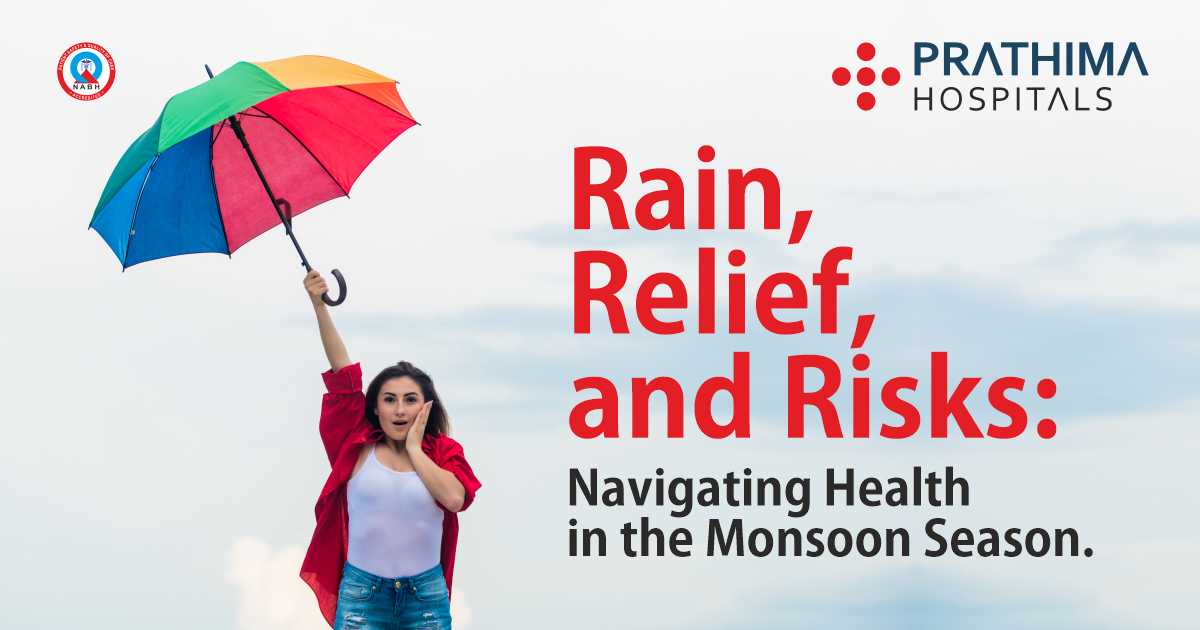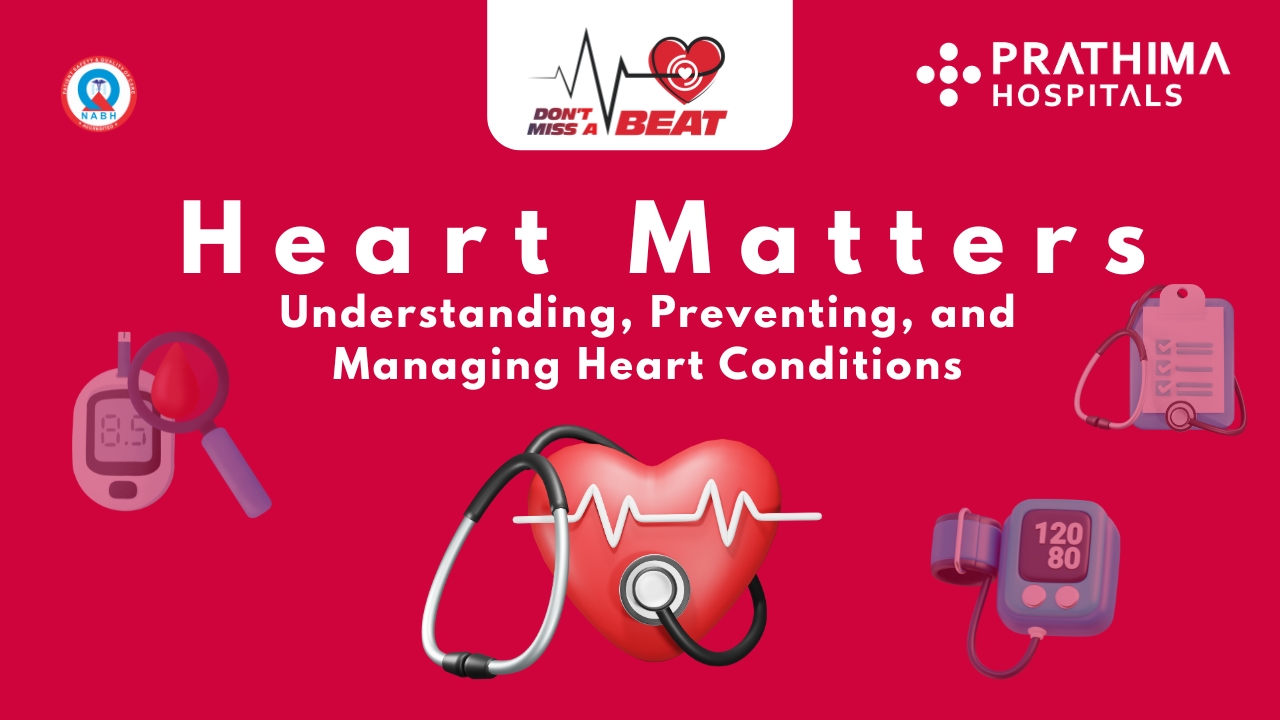Rain, Relief, and Risks: Navigating Health in the Monsoon Season

Navigating Health in the Monsoon Season
As the skies darken and the air fills with the earthy scent of petrichor, the monsoon season arrives like a long-awaited guest. Bringing relief from the scorching summer heat, monsoons are welcomed across many parts of the world, especially in tropical regions like South Asia. However, while the rains rejuvenate the environment, they also bring with them a slew of health risks.
In this blog, we will explore the intricate relationship between the monsoon season and our health, discussing the common diseases, preventive measures, diet tips, mental well-being, and ways to stay safe and healthy during this romantic yet risky time of year.
The Double-Edged Sword of Monsoons
Monsoons are vital for agriculture, replenish water sources, and regulate climate patterns. Yet, the increase in humidity, water stagnation, and fluctuations in temperature create a breeding ground for various pathogens. Viral infections, waterborne diseases, and fungal issues tend to spike during this season.
Understanding the health challenges
associated with monsoons helps us prepare and respond proactively rather than reactively. Let’s dive into the most common health concerns first.
Common Monsoon-Related Diseases
Waterborne Diseases
Water contamination is rampant during monsoons due to flooding and poor drainage. This gives rise to several serious health conditions:
- Cholera: Caused by the bacterium Vibrio cholerae, cholera is marked by severe diarrhea and dehydration. If untreated, it can be fatal.
- Typhoid: A bacterial infection that spreads through contaminated food and water, typhoid presents symptoms like high fever, abdominal pain, and weakness.
- Hepatitis A and E: These viral infections affect the liver and are commonly spread through the consumption of contaminated water or food.
- Diarrhea: While often mild, monsoon-related diarrhea can become dangerous, particularly for children and the elderly.
Vector-Borne Diseases
With the increase in stagnant water, mosquito populations explode, leading to a surge in vector-borne illnesses:
- Dengue: Spread by the Aedes mosquito, dengue can cause high fever, rashes, and internal bleeding in severe cases.
- Malaria: Caused by Plasmodium parasites, malaria spreads through the Anopheles mosquito and leads to fever, chills, and flu-like symptoms.
- Chikungunya: Another mosquito-borne viral disease, chikungunya results in joint pain, fever, and fatigue.
Airborne Infections
The humid environment facilitates the survival and transmission of viruses and bacteria:
- Cold and Flu: The changes in temperature and dampness weaken our immune system, making us susceptible.
- Respiratory Infections: Sinusitis, bronchitis, and asthma tend to get aggravated during the wet season due to mold growth and air pollution.
Fungal Infections
Fungi thrive in humid conditions. Skin and foot infections such as athlete’s foot, ringworm, and candidiasis become more common.
Why Our Bodies Are Vulnerable During Monsoons
Several physiological and environmental factors make us more prone to diseases during this season:
- Lower Immunity: The rapid change from hot and dry to cool and moist affects the body’s natural defense mechanisms.
- Increased Pathogen Exposure: Contaminated water, food, and air lead to higher rates of infection.
- Poor Sanitation: Overflowing drains and clogged sewers act as reservoirs for germs.
- Improper Food Handling: Street food becomes riskier as vendors struggle with hygiene amidst rain and moisture.
Monsoon diet tips for Wellness Guide
What we eat plays a crucial role in building immunity and preventing disease. Here’s how you can tweak your diet for the rainy season:
- Eat Fresh and Light
Digestive issues are common in monsoons. Opt for light, freshly cooked meals instead of rich, oily foods that strain the stomach.
2. Go Seasonal
Incorporate seasonal vegetables and fruits like:
- Bitter gourd and fenugreek: Help in detoxifying the body.
- Jamun, pomegranate, and pears: Boost immunity.
3. Spice It Up
Natural spices like turmeric, ginger, garlic, and black pepper have antimicrobial properties and aid digestion.
4. Stay Hydrated (Safely)
Drink boiled or filtered water. Avoid drinking outside beverages unless they’re from a trusted source.
5. Avoid Street Food
As tempting as it is to grab a piping hot samosa or a plate of pani puri in the rain, it’s best avoided due to hygiene concerns.
Mental Health in the Monsoon
While many find rain calming and romantic, others experience dips in mood, energy, and mental wellness during prolonged gloomy weather.
- Seasonal Affective Disorder (SAD)
Lack of sunlight can lead to seasonal depression. Symptoms include:
- Persistent sadness
- Lethargy
- Loss of interest in daily activities
2. Staying Active Indoors
Indoor workouts, yoga, and stretching exercises help release endorphins that improve mood and energy levels.
3. Light Therapy and Ventilation
Keep windows open for natural light. Light therapy lamps can also help in places with prolonged dark days.
4. Connect with People
Isolation and cabin fever are common in the monsoon. Regular communication with family and friends helps keep your spirits up.
Monsoon Hygiene: Your First Line of Defense
Basic hygiene practices go a long way in preventing seasonal illnesses:
- Personal Hygiene
- Bathe daily and dry yourself properly.
- Use antifungal powders in areas prone to sweating.
- Wash your hands frequently.
2. Home Hygiene
- Clean and disinfect surfaces regularly.
- Ensure there is no water stagnation indoors or around your home.
3. Food Hygiene
- Wash vegetables and fruits thoroughly.
- Cook food properly and consume it fresh.
- Store leftovers in clean, covered containers.
Practical Monsoon Safety Tips
1. Wear Appropriate Clothing
Wear breathable, quick-drying fabrics. Avoid tight clothes that hold moisture and encourage fungal infections.
2. Keep Your Feet Dry
Invest in waterproof footwear and avoid walking in puddles. Wet feet are breeding grounds for infections.
3. Protect Against Mosquitoes
- Use mosquito repellents and nets.
- Empty containers that may collect water.
- Use mosquito screens on windows.
4. Carry an Umbrella or Raincoat
- Always have rain protection handy to avoid getting drenched and catching a cold.
Special Care for Children and Elderly
Young children and older adults are more susceptible to infections during monsoon due to weaker immunity.
- Children: Keep them indoors during heavy rains, ensure they drink clean water, and dress them appropriately.
- Elderly: Watch for respiratory distress or joint pain, which may worsen due to humidity.
Traditional Remedies and Natural Immunity Boosters
While medical intervention is essential for infections, traditional and home remedies can complement your defenses:
- Tulsi (Holy Basil): Known for its antibacterial and antiviral properties.
- Neem: Acts as a blood purifier and helps fight skin infections.
- Amla (Indian Gooseberry): Rich in Vitamin C, boosts immunity.
- Honey with Warm Water: Soothes the throat and fights bacteria.
When to See a Doctor
Despite your best efforts, some symptoms require immediate medical attention:
- High fever lasting more than 2 days
- Persistent vomiting or diarrhea
- Breathing difficulties
- Skin rashes that spread
- Bleeding or bruising (could indicate dengue or other serious infections)
- Do not self-medicate for suspected bacterial or viral infections.
Make the Most of Monsoon Mindfully
The monsoon is a season of beauty, renewal, and joy. Children play in puddles, farmers rejoice at the rains, and the world around us turns lush green. However, amidst this natural celebration, health should remain a priority.
By adopting proper hygiene, adjusting your diet, staying physically and mentally active, and being vigilant about potential health risks, you can enjoy all the monsoon has to offer, minus the illness.
As always, prevention is better than cure. Let the rains pour, but let your health stay shielded. Happy Monsoon!
.
.
For More Details:
📞:: 733 733 6600 | 040 4345 4345
🌐:: https://prathimahospitals.com/book-appointment/





